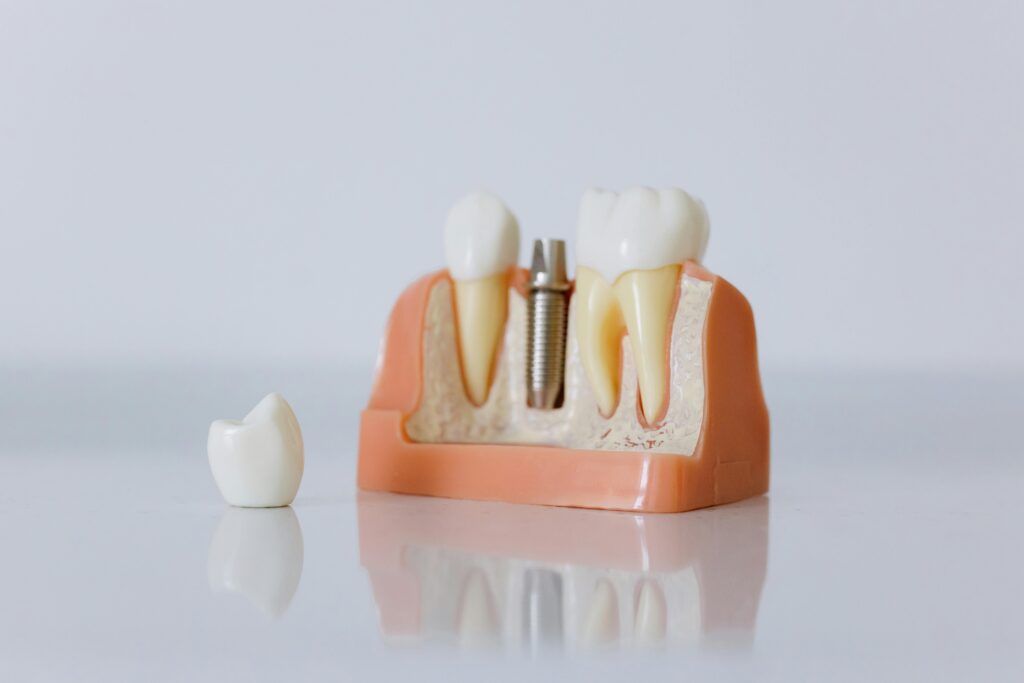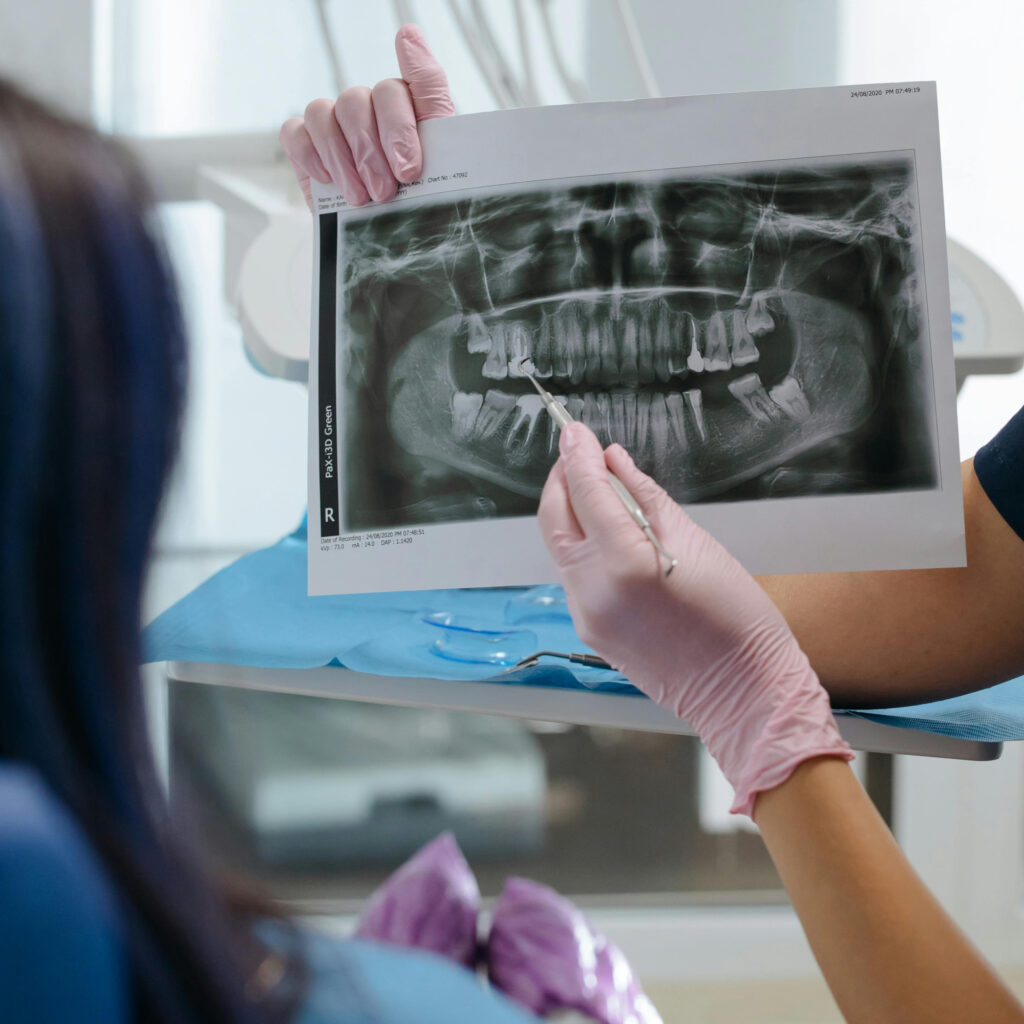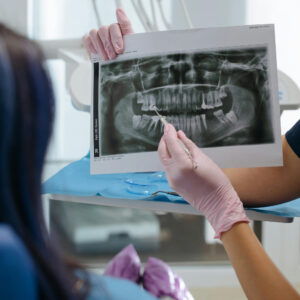At Oaks Dental, we understand the impact of missing teeth on your confidence, oral health, and overall quality of life. That’s why we offer dental implants in Calabasas, a transformative solution designed to restore your smile, enhance chewing function, and prevent further bone loss. Our expert team, advanced technology, and commitment to concierge-level care ensure that every step of your dental implant procedure is seamless, precise, and tailored to your needs.
Why Choose Oaks Dental for Dental Implants?
Choosing Oaks Dental for your dental implants means choosing a team that goes beyond clinical excellence. Our state-of-the-art facility combines cutting-edge technology like digital imaging, 3D dental x-rays, and same-day crowns with a warm, welcoming environment designed for your comfort. We offer oral surgery for dental implants, bone grafting, and comprehensive tooth loss treatment, all under one roof. From your initial dental consultation to post-operative care, we guide you through the entire implant process with personalized attention, ensuring optimal outcomes and long-term success.

What Are Dental Implants?
A dental implant is a small, biocompatible post—typically made from titanium or ceramic—that is surgically placed into the jawbone to act as a secure anchor for a replacement tooth, bridge, or denture. By mimicking the root of a natural tooth, dental implants stimulate the jawbone and help prevent bone loss that often occurs with missing teeth. They are a long-lasting and stable option for tooth replacement, offering a natural look and feel while restoring your ability to eat, speak, and smile with confidence.
Types of Dental Implants
Oaks Dental provides versatile dental implant options tailored to your specific needs. The most common types include:
- Endosteal Implants: These are the most frequently used, placed directly into the jawbone. Made of titanium or ceramic, they integrate with the bone to provide a strong foundation for crowns, bridges, or dentures.
- Subperiosteal Implants: These sit on top of the jawbone under the gum tissue, suitable for patients with insufficient bone density who may not be candidates for traditional implants.
- All-on-4® Dental Implants: Ideal for full-arch restorations, this technique allows for a secure prosthesis supported by just four implants.
Our implant dentist will assess your oral health and bone structure through dental x-rays and scans during your dental consultation to determine the best type of implant for your unique case.
How Do I Know If I Need Dental Implants?
Ideal candidates for dental implants include those with one or more missing teeth, difficulty chewing or speaking due to tooth loss, a preference for a secure, long-term solution over removable dentures or bridges, a desire to prevent bone loss and maintain jawbone stimulation, healthy gums and sufficient bone structure (or willingness to undergo bone grafting if needed), and a need for a natural-looking, functional tooth replacement.

Are There Side Effects of Dental Implants?
While dental implants are generally safe, some patients may experience temporary side effects such as:
- Swelling or bruising around the gums and face
- Minor bleeding at the implant site
- Discomfort or mild pain after oral surgery
- Risk of infection or implant failure (rare with proper care)
- Nerve damage in rare cases
We use minimally invasive techniques, advanced imaging, and precise placement strategies to reduce risks and ensure a smooth recovery. Our team will guide you through every step of the implant process, including post-operative care to promote healing and reduce complications.
What Is the Step-by-Step Procedure for Getting a Dental Implant?
The process begins with a thorough consultation using x-rays and 3D scans to assess your bone health, gum condition, and treatment needs. A customized plan is then created, outlining the number of implants, need for bone grafting (if applicable), and the type of tooth replacement. During oral surgery, the titanium or ceramic implant is placed in the jawbone under local anesthesia or sedation. After 3–6 months of healing and osseointegration, where the implant fuses with the bone, an abutment is attached, followed by a custom crown, bridge, or denture for a natural look and function.
What Is the Expected Recovery Time After the Implant Procedure?
Initial healing usually takes about 1–2 weeks, with full osseointegration—where the implant bonds to the bone—taking 3–6 months. Factors such as the number of implants placed, the need for bone grafting, and your individual healing response can affect the timeline. We provide detailed post-op instructions to ensure you recover comfortably and maintain the health of your implant.
How Should I Care for My Implant After Surgery?
At Oaks Dental, we offer personalized dental implant care instructions to help you protect your investment and maintain optimal oral health. We emphasize gentle brushing and flossing around the implant to keep the area clean, using a soft-bristle toothbrush and non-abrasive toothpaste to avoid damaging the implant surface. Rinsing with a saltwater solution or a recommended mouthwash can help reduce bacteria and promote healing.
During the healing phase, we advise avoiding hard, sticky, or crunchy foods that could disrupt the implant site. Regular check-ups at our Calabasas office and professional cleanings are essential to monitor your gum health and ensure the stability of your jawbone.
What Can I Eat or Not Eat After the Implant Is Placed?
After oral surgery, we recommend a soft diet for the first few days, including:
- Smoothies, yogurt, and applesauce
- Mashed potatoes, scrambled eggs, and oatmeal
- Soups and broths (lukewarm, not hot)
Avoid hard, crunchy, or sticky foods like nuts, chips, and caramel during the healing phase to prevent implant disturbance. Once healing is complete, dental implants restore functionality, allowing you to enjoy most foods without restrictions.
How Long Do Dental Implants Typically Last?
With proper care, dental implants can last 15–25 years or even longer. Factors like oral hygiene, routine professional cleanings, and avoiding habits like smoking or teeth grinding play a significant role in the longevity of your dental implants. By preventing gum disease and maintaining bone loss prevention practices, you can enjoy your new smile for a lifetime.
What Factors Could Affect the Long-Term Success of My Implant?
At Oaks Dental, we offer ongoing care and guidance to help you get the most out of your dental implants. Several key factors can impact the longevity and health of your implants. Gum disease is a major concern, as infections can weaken the support structure around the implant. Maintaining strong bone health is also essential—adequate jawbone stimulation and volume are necessary for implant stability, and in some cases, bone grafting may be recommended for optimal support.
Good oral hygiene habits, including daily brushing, flossing, and regular professional cleanings at our Calabasas office, are crucial for long-term implant success. Lifestyle choices, such as smoking, a poor diet, and teeth grinding (bruxism), can negatively affect implant health, so it’s important to manage these habits. Additionally, certain medical conditions, like uncontrolled diabetes, can impact healing and implant integration.
Our team works closely with you to address these factors, ensuring your dental implants remain stable, functional, and aesthetically pleasing for years to come.
Schedule your appointment
Ready to restore your smile with dental implants? Call Oaks Dental at (818) 431-2000 to schedule your dental consultation today. Let us help you experience the life-changing benefits of dental implants in Calabasas—designed to restore, protect, and enhance your smile.

